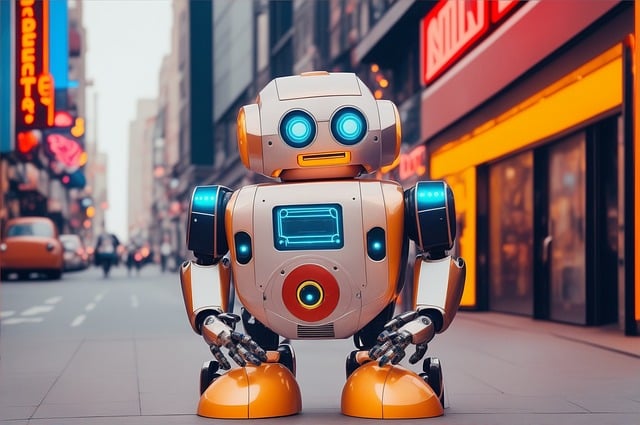Section 1: Introduction to AI Technology
Artificial Intelligence (AI) technology has been a buzzword in recent years, with its potential to revolutionize industries and change the way we live and work. AI refers to the development of computer systems that can perform tasks that typically require human intelligence, such as visual perception, speech recognition, decision-making, and language translation. With advancements in machine learning and deep learning, AI is becoming more sophisticated and is being integrated into various industries, from healthcare to finance to manufacturing. In this article, we will explore the impact of AI technology on different industries and how it is transforming the way we do business.
Section 2: AI in Healthcare
One of the industries that has been greatly impacted by AI technology is healthcare. With the vast amount of medical data being generated every day, AI has the potential to analyze and interpret this data at a much faster and more accurate rate than humans. This can help healthcare professionals make more informed decisions and improve patient outcomes. For instance, AI-powered medical imaging can assist in the early detection of diseases such as cancer, by analyzing medical images and identifying abnormalities that may be missed by the human eye. This not only saves time but also increases the chances of successful treatment.
Moreover, AI technology is also being used to develop personalized treatment plans for patients. By analyzing a patient’s medical history, genetic data, and lifestyle factors, AI algorithms can recommend the most effective treatment options for an individual. This not only improves patient care but also reduces healthcare costs by avoiding unnecessary treatments. Additionally, AI-powered chatbots are being used to provide virtual healthcare assistance, allowing patients to access medical advice and information anytime, anywhere. This is especially beneficial for people living in remote areas with limited access to healthcare facilities.
Section 3: AI in Finance
The finance industry is another sector that has been revolutionized by AI technology. With the ability to process and analyze large amounts of financial data, AI-powered algorithms can make more accurate predictions and assist in making investment decisions. This has led to the rise of robo-advisors, which are AI-driven investment platforms that provide personalized investment advice to clients based on their risk tolerance and financial goals. These robo-advisors are not only more efficient but also more cost-effective than traditional financial advisors, making investment services more accessible to a wider range of people.
Furthermore, AI technology is also being used to detect and prevent fraud in the financial sector. By analyzing patterns and anomalies in financial transactions, AI algorithms can identify potential fraudulent activities and alert financial institutions to take necessary actions. This not only protects consumers but also saves financial institutions billions of dollars in losses due to fraud.
Another area where AI is making a significant impact in the finance industry is in the development of chatbots for customer service. These AI-powered chatbots can handle routine customer inquiries and provide quick and accurate responses, freeing up human employees to focus on more complex tasks. This not only improves customer satisfaction but also reduces operational costs for financial institutions.
Section 4: AI in Manufacturing
The manufacturing industry has also been transformed by AI technology. With the rise of Industry 4.0, which refers to the integration of advanced technologies in manufacturing, AI has become an essential component in optimizing production processes. AI-powered robots and machines can perform tasks with precision and speed, reducing the risk of human error and increasing efficiency. This has led to the development of smart factories, where AI and other technologies work together to automate and optimize the entire manufacturing process.
Moreover, AI technology is also being used for predictive maintenance in manufacturing. By analyzing data from sensors and machines, AI algorithms can predict when equipment is likely to fail and schedule maintenance before any breakdown occurs. This not only reduces downtime and maintenance costs but also improves overall productivity.
Furthermore, AI is also being used for quality control in manufacturing. By analyzing data from sensors and cameras, AI algorithms can detect defects in products at a much faster and more accurate rate than humans, ensuring that only high-quality products reach the market. This not only saves time and resources but also improves customer satisfaction and brand reputation.
Section 5: Conclusion
In conclusion, AI technology has the potential to revolutionize various industries and transform the way we live and work. From improving healthcare outcomes to optimizing financial services to streamlining manufacturing processes, AI is making a significant impact in different sectors. However, as with any new technology, there are also concerns about the potential job displacement and ethical implications of AI. It is essential for businesses and policymakers to address these concerns and ensure that AI is used responsibly and ethically. With the right approach, AI technology can bring about positive changes and drive innovation in various industries, ultimately benefiting society as a whole.

